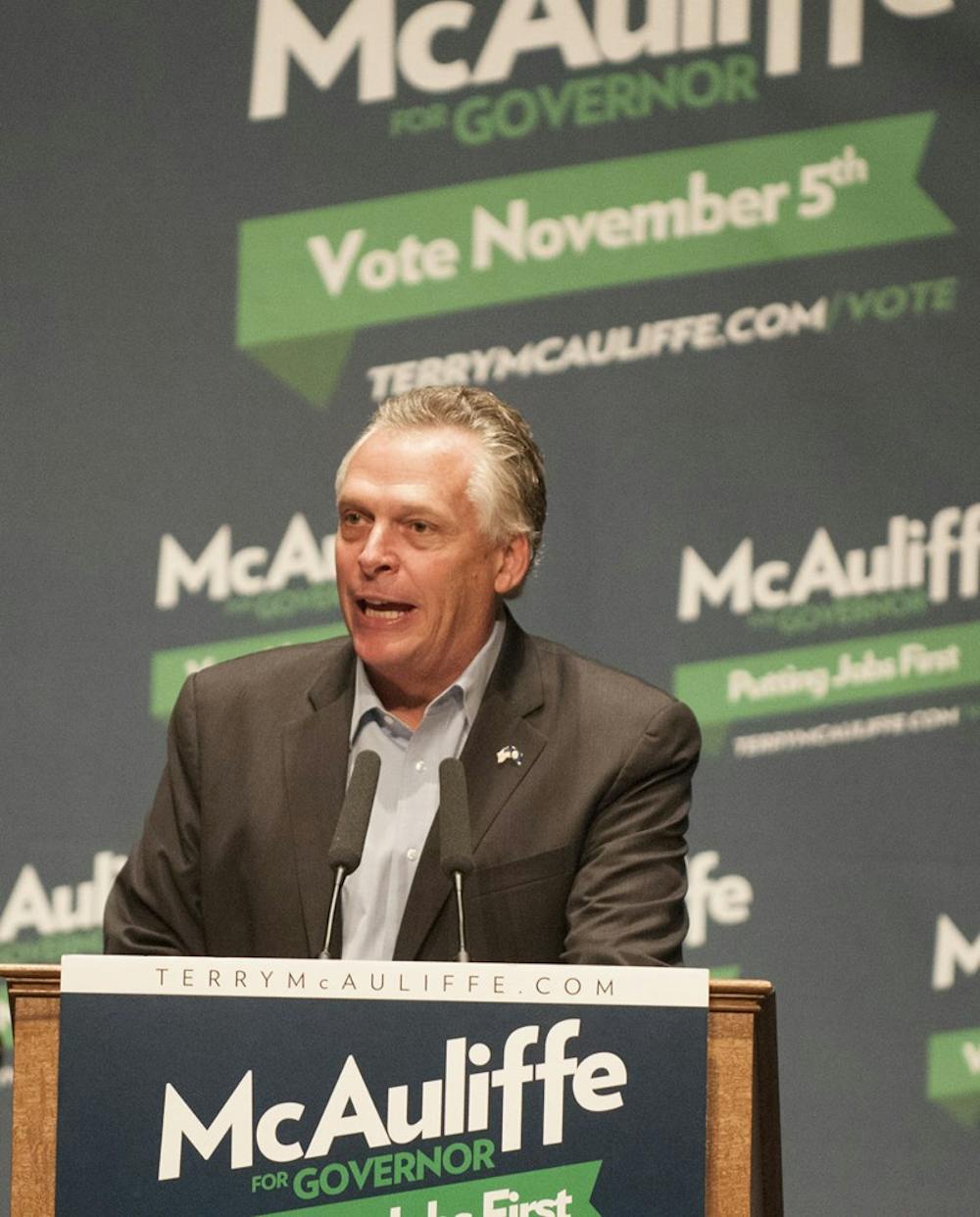Gov. Terry McAuliffe unveiled the 2014 Virginia Energy Plan Tuesday at an event co-sponsored by the Virginia Chamber of Commerce and the Virginia League of Conservation Voters.
McAuliffe's strategy will focus on traditional energy, renewable energy and improved energy efficiency.
“Broadening the number of sources utilized and consumed in Virginia will make the commonwealth less reliant on imported energy, increase economic development and provide a hedge against future volatility that may affect particular resources and be detrimental to the Virginia economy,” the executive summary read.
In a letter explaining the changes, McAuliffe said he believes the plan will make the state less dependent on external resources for cleaner and cheaper energy.
The Virginia Student Environmental Coalition released a response to the Governor’s energy plan, praising aspects of the proposal but criticizing the plan for not going far enough.
VSEC’s press release stated that though they approve of the proposed encouragement of solar development, the state plan does not include measures to effectively cut down on Virginia’s greenhouse gas emissions.
Fourth-year College student Dyanna Jaye, VSEC’s coalition chair, said Virginia lags behind other states in the country in terms of wind and solar scale energy.
“It’s not really that Virginia is doing anything exceptional,” Jaye said. “It’s just that we’re finally catching up to our neighbors in terms of responding to climate change and building a sustainable economy moving forward.”
Jaye said VSEC members are not happy with the plan’s support of the Atlantic Coast pipeline, offshore gas drilling or increased coal exports.
“We would like to see more aggressive action to limit fossil fuel production within the state,” Jaye said. “Governor McAuliffe’s plan supports ‘all of the above energy.’ … This just hands the job down to future generations, in terms of actually transitioning to a sustainable society.”
Jaye said Virginia's heavy reliance on coal production and exports is damaging to the local communities involved in coal miling.
“To ramp up on coal export in Virginia and send more fossil fuels out of our state basically means that our communities will be bearing the cost of that,” Jaye said. “There’s a whole host of negative research out there proving the negative impacts of living near coal extraction sites and coal refinery sites.”
Jaye said coal is the first fossil fuel that should be left behind, because of its negative effects on communities.
“To see our state furthering that is really disappointing,” she said. “We’re kind of going in the opposite direction that I would hope.”
Jaye also said the implementation for the plan must be more precisely defined.
“It will be interesting to see if the good things we are celebrating in words will actually be turned into actions,” she said.







